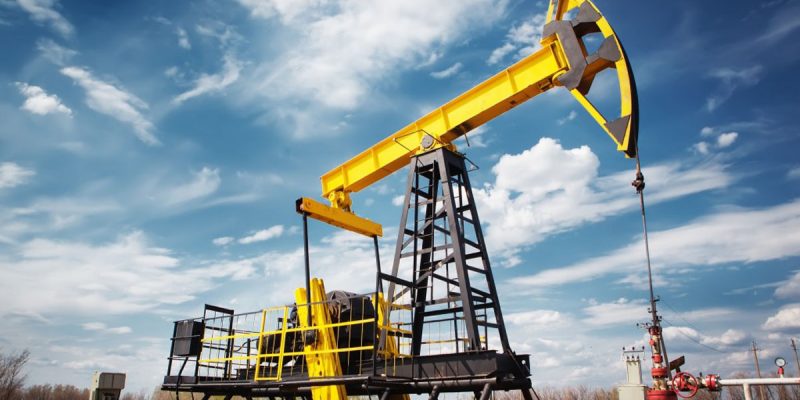Yesterday, Jeff Sadow had a very good post here at The Hayride talking about the gigantic 227-page SB 244 by Republican state Sen. Bob Hensgens. The bill, signed this week by Gov. Jeff Landry, addresses a long-time issue for the oil and gas industry in the state – namely, the “legacy” lawsuits filed by landowners unsatisfied with the environmental effects of drilling and production on their land.
Sadow describes the situation thusly…
SB 244, just signed into law by Republican Gov. Jeff Landry, provides for a massive overhaul of matters energy and conservation; indeed, it renamed the Department of Energy and Natural Resources – itself just renamed 18 months ago – into the Department of Conservation and Energy come Oct. 1. It dipped its toe into many matters, predictably enough given its length, starting out at 66 pages just to reorganize the department, and then burst into a 227-page substitute bill as more stuff got piled on.
Aside from its reorganization focus, the most significant change it triggers comes in how legal questions surrounding land use for fossil fuel energy purposes are to be handled from Sep. 2027 on. Principally, it addresses legacy lawsuits, or legal actions taken against former owners of land used for fossil fuel extraction purposes for alleged environmental damage. It attempts to bring consistency and clarity to the area of legal controversy, mainly by putting more power in the hands of administrative processes at the expense of the judiciary. Courts could override only if they ruled for a much better plan for remediation using a much higher legal standard.
Besides streamlining the process that should reduce costs, it also reduces incentives to pursue “jackpot justice” by limiting damages and costs. In fact, if not found liable, defendants can recover costs from plaintiffs.
The bill is pretty similar, in terms of its treatment of legacy suits, to one which Sen. Alan Seabaugh brought last year. The difference is that while Seabaugh’s bill would have crammed the resolution of these controversies – which in both bills favors legacy arbitration/environmental cleanup rather than bringing everything to courts for fat verdicts – down essentially right away, something the trial lawyers howled about, and Hensgens’ bill makes for a 26-month delay in implementation of the new process.
Meaning that we’ll have an orgy of legacy lawsuits filed in the next couple of years, because the legacy lawyers – the infamous John Carmouche being the most famous of them – are going to drum up every case they can in something akin to a Going Out Of Business Sale. That’s apparently the price of resolving these suits, a lot of which have started with legitimate claims and have turned into outright theft from an industry the jobs from which are being chased from Louisiana faster than the oil and gas are being drained from under our feet.
The coastal lawsuits Carmouche and his pals have also convinced a number of local governments to file against Big Oil – highlighted by the $700-million-plus verdict one such suit in Plaquemines Parish has already produced – are a related species of legal combat, and combined they’ve amounted to an amphibious assault on the industry.
And the result is that Louisiana’s oil production has gone from one of the highest volumes in the country to a relatively minor amount. It used to be that royalties and severance taxes from oil and gas were such a big part of the state’s budget that we’d see a boom or bust in state revenues based on the price of oil; nobody even talks about that anymore.
Big Oil has largely picked up and left Louisiana. Those lawsuits aren’t the sole reason why, but they’re a factor.
The positive piece to this, though, is that it’s starting to look like the coastal lawsuits might have peaked with that verdict in Plaquemines Parish. The Supreme Court is going to rule soon on whether state courts are the proper venue for those cases, and it seems like the answer is going to be that they aren’t, and if the coastal lawsuits end up in the federal courts they’re done.
And while we’ll have a spate of last-minute legacy suits based on old land claims, we now know that in 2027 that will go away.
On that basis, and on the basis of the other reforms in SB 244, Louisiana will actually be a reasonably friendly place to look for oil and gas.
It’s somewhat doubtful that the big players like ExxonMobil and Chevron, once bitten and twice shy, would come back to harvest the plays that are left here in the state, like the Austin Chalk which runs across the west and central part of the state and could become a future source of great wealth. But for smaller and independent producers less burdened with a history of legal entanglements, the prognosis could be different.
And maybe a bunch of independents leading an oil and gas comeback ends up as a better situation anyway. The one thing about Big Oil is those are giant, soulless multinationals headquartered far away who can generally take or leave Louisiana. If your energy sector is dominated by independents you might find that a lot of them are headquartered here and will actually invest and fight for our communities.
And maybe one of those Louisiana-based companies grows into Big Oil status. I’m not betting on that yet, but it’s not impossible.
This state still has first-class infrastructure for oil and gas, after all. We’re spider-webbed with pipelines leading to critical refineries and other facilities. We’ve got a large population of people who know the industry, and we can claw back natives who’ve had to leave for opportunities elsewhere.
What we don’t have is a legal climate that makes it sane to drill here. But it seems like that’s changing.
And there’s reason for optimism, even if it looks a bit bleak right now.
Advertisement
Advertisement

